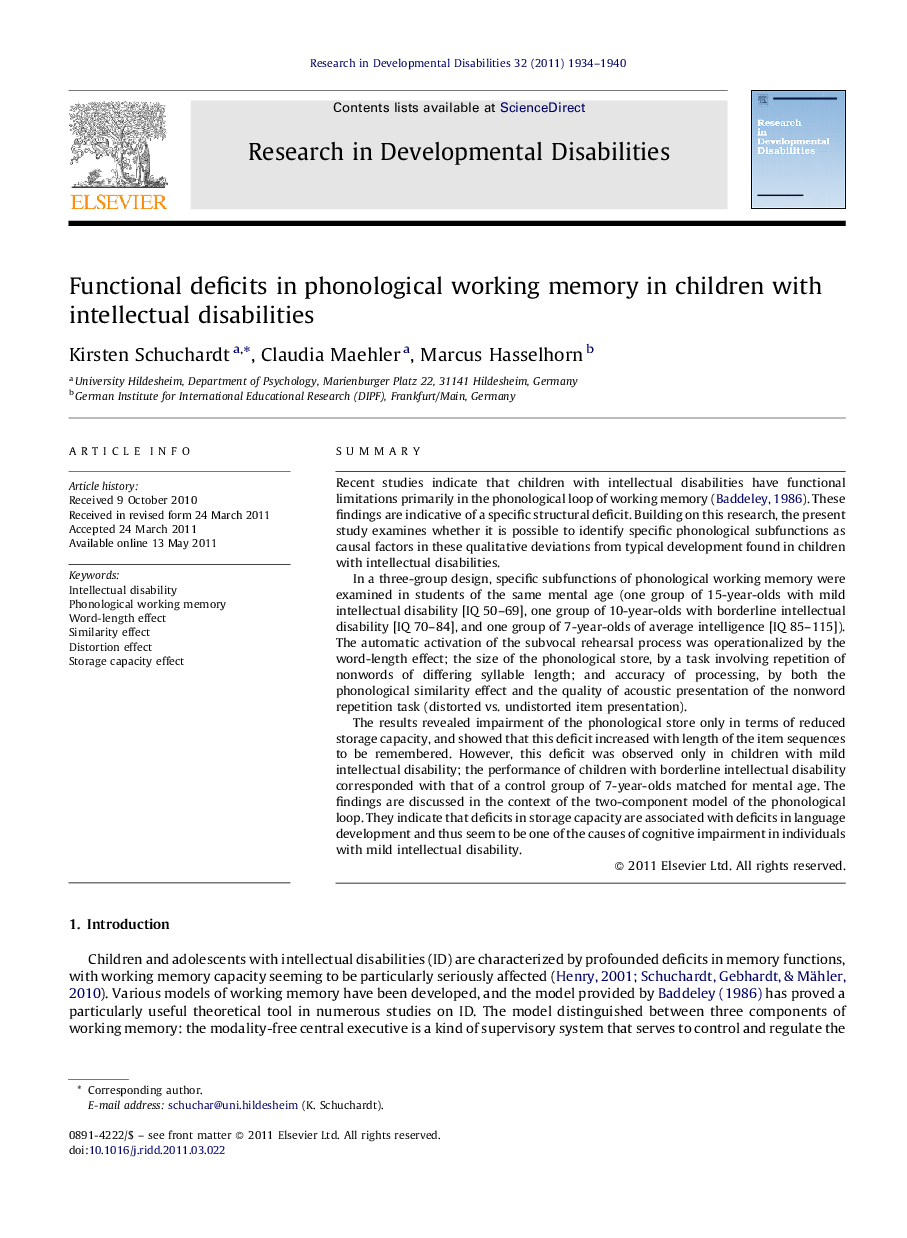| Article ID | Journal | Published Year | Pages | File Type |
|---|---|---|---|---|
| 371730 | Research in Developmental Disabilities | 2011 | 7 Pages |
SummaryRecent studies indicate that children with intellectual disabilities have functional limitations primarily in the phonological loop of working memory (Baddeley, 1986). These findings are indicative of a specific structural deficit. Building on this research, the present study examines whether it is possible to identify specific phonological subfunctions as causal factors in these qualitative deviations from typical development found in children with intellectual disabilities.In a three-group design, specific subfunctions of phonological working memory were examined in students of the same mental age (one group of 15-year-olds with mild intellectual disability [IQ 50–69], one group of 10-year-olds with borderline intellectual disability [IQ 70–84], and one group of 7-year-olds of average intelligence [IQ 85–115]). The automatic activation of the subvocal rehearsal process was operationalized by the word-length effect; the size of the phonological store, by a task involving repetition of nonwords of differing syllable length; and accuracy of processing, by both the phonological similarity effect and the quality of acoustic presentation of the nonword repetition task (distorted vs. undistorted item presentation).The results revealed impairment of the phonological store only in terms of reduced storage capacity, and showed that this deficit increased with length of the item sequences to be remembered. However, this deficit was observed only in children with mild intellectual disability; the performance of children with borderline intellectual disability corresponded with that of a control group of 7-year-olds matched for mental age. The findings are discussed in the context of the two-component model of the phonological loop. They indicate that deficits in storage capacity are associated with deficits in language development and thus seem to be one of the causes of cognitive impairment in individuals with mild intellectual disability.
► Research question: examination of phonological working memory. ► Participants: children with different degrees of intellectual disability (borderline and mild) and a control group of typically developing children, all matched for mental age. ► Measures: word-length effect, syllable-length effect in nonwords, similarity and distortion effect. ► Main result: special impairment of phonological store in children with mild intellectual disability.
